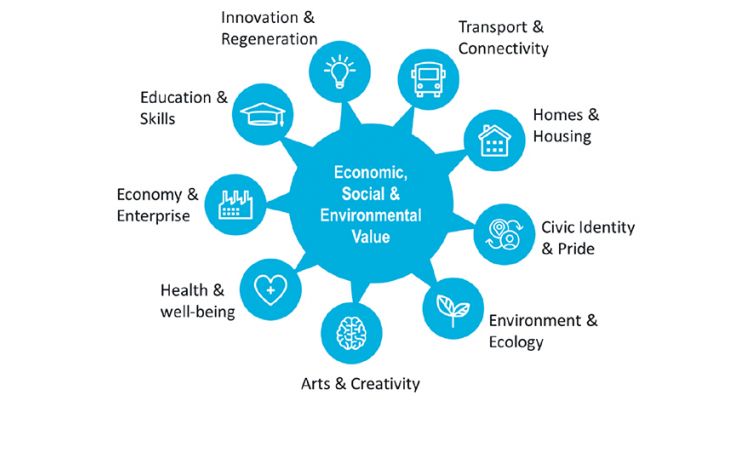Britain has continued to grow and invest in its station estate – in the last decade, 34 new stations have been added to make 2569 stations on the network, and over 200 have benefitted from material investment. However, are we clear as to the value to local communities from that investment in stations?
The Rail Delivery Group and Network Rail asked Steer that very question, and we set about answering it through the lens of social value.
Social value seeks to summarise the economic, environmental and community or social contribution. The social value concept has been gaining traction in the UK, particularly since 2015 when the Government identified obligations regarding some public sector procurements. In late 2020 the Government further emphasised social value with mandatory obligations to consider it in the procurement of central government projects.
Steer investigated the investments in over 180 stations to identify four illustrative stations (Strood, Chelmsford, Burnley Manchester Road and Nottingham) whose scale, timing and nature of investment would be relevant to the question. We developed a framework of social value perspectives (see figure 1). We undertook desktop research into datasets that reflected the different aspects of social value – including planning applications, employment data, property values, numbers of enterprises and crime data.






